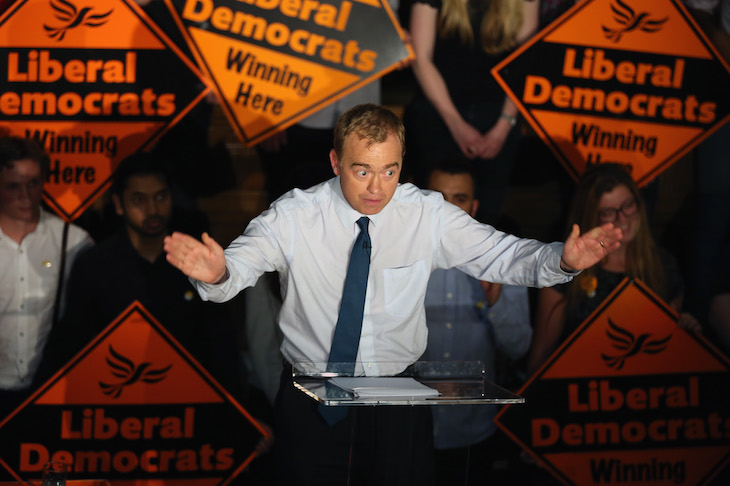Theresa May’s return to Downing Street on the morning of 9 June will surprise no-one, but there is one thing political commentators will be left to puzzle over: just why did the Liberal Democrats do so badly? Tim Farron’s party should be big winners in this general election. If not matching the 62 seats they won in 2005 or the 57 they notched up in 2010 they should at least be going a long way to reversing the collapse they suffered in 2015 as many of their voters punished them for their role in the coalition and for Nick Clegg’s backtrack on his tuition fees pledge in particular. Conditions are hugely favourable for them. Labour has drifted far to the left as it did in 1983 when the then Liberal-SDP Alliance won 25 per cent of the vote. Not only that, the Lib Dems ought to be benefitting from their long-established reputation as the most pro-EU of the main parties. They should be scooping up votes by the thousand from disaffected Remainers angered by Theresa May’s Brexit strategy and confused by Labour’s position.
So why are the Lib Dems stuck between 8 and 11 per cent in the polls – little advance on their performance in the general election of 2015? Admittedly, one treats opinion polls with extreme caution nowadays, but at this rate they could even lose one or two of the meagre eight seats they won then.
They certainly won’t be winning votes in the centre ground from their latest policy, announced yesterday, of legalising cannabis. This is not just a case of decriminalisation as they have proposed in the past. They want cannabis sold on the High Street, in regulated Dutch-style cannabis ‘social clubs’.
That will appeal to some students and may go down well in some trendy urban seats, but to middle class parents in Newbury, Eastleigh, Richmond and many the other rural and suburban seats they have held in the recent past? It is possible to argue that prohibition has not been a great success. Then again, the current penalties for possession of cannabis – up to five years in jail – are largely theoretical, as police and courts already do follow a de facto policy of decriminalisation for people with small quantities of the drug. What most people can see, however, is that if you legalise a drug and make it available on the High Street you will vastly increase the numbers of people using it – with, in the case of cannabis, the rather horrible result of more mental illness among the young.
Rather than appealing to the great mass of protest votes in the centre which has served them well in the past the Lib Dems seem to be doing as parties so often do after a cataclysmic defeat: retreating to a core vote strategy. It didn’t get William Hague anywhere in 2001, and neither is a strategy of appealing to Labour’s trade union core going to get Jeremy Corbyn anywhere this year. But at least the Conservatives and Labour both have significant core votes. The Lib Dems’ core vote is a rather sad sight, restricted to the Young Liberals of the 1970s, grown up – or rather having failed to grow up.







Comments